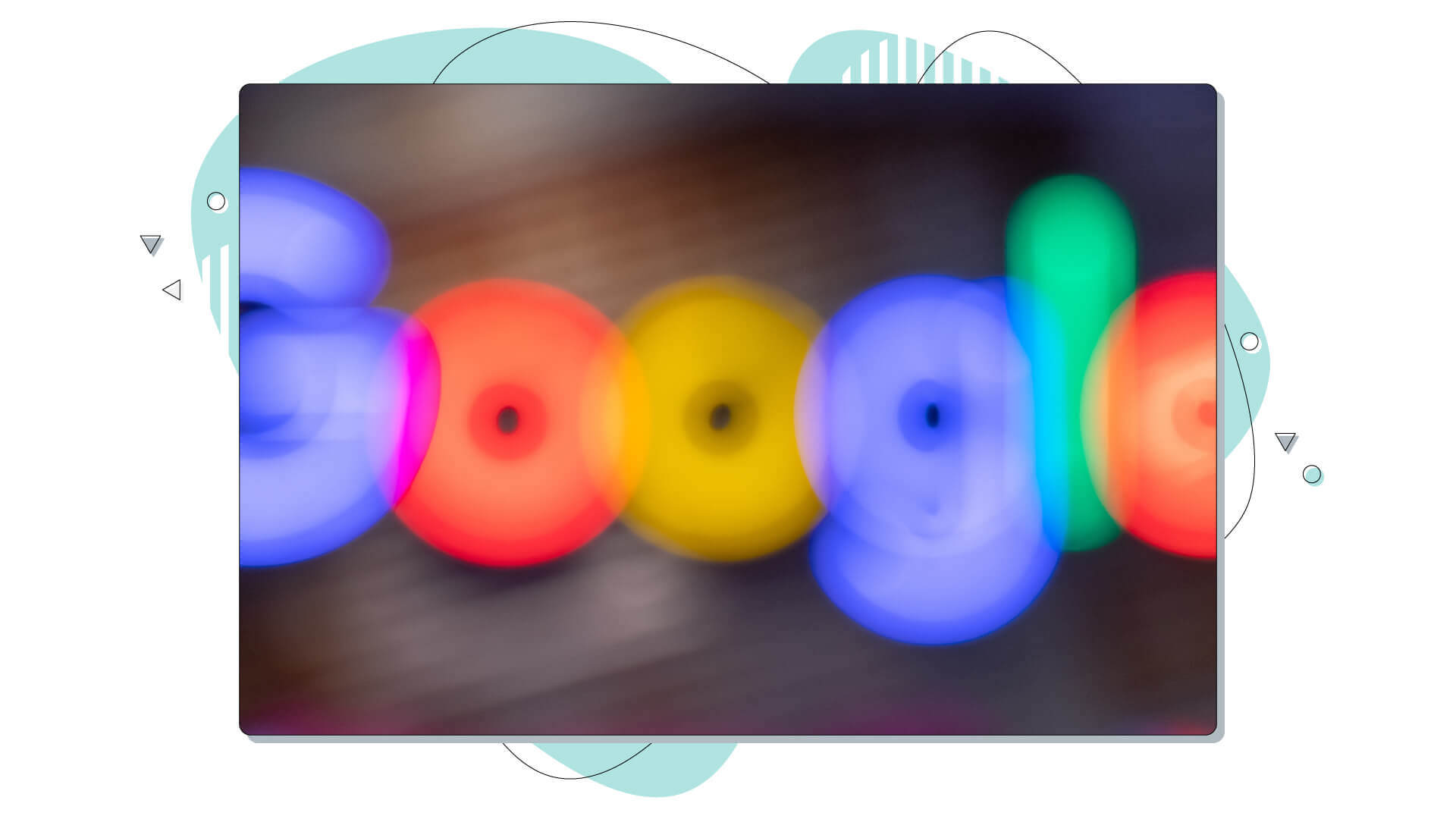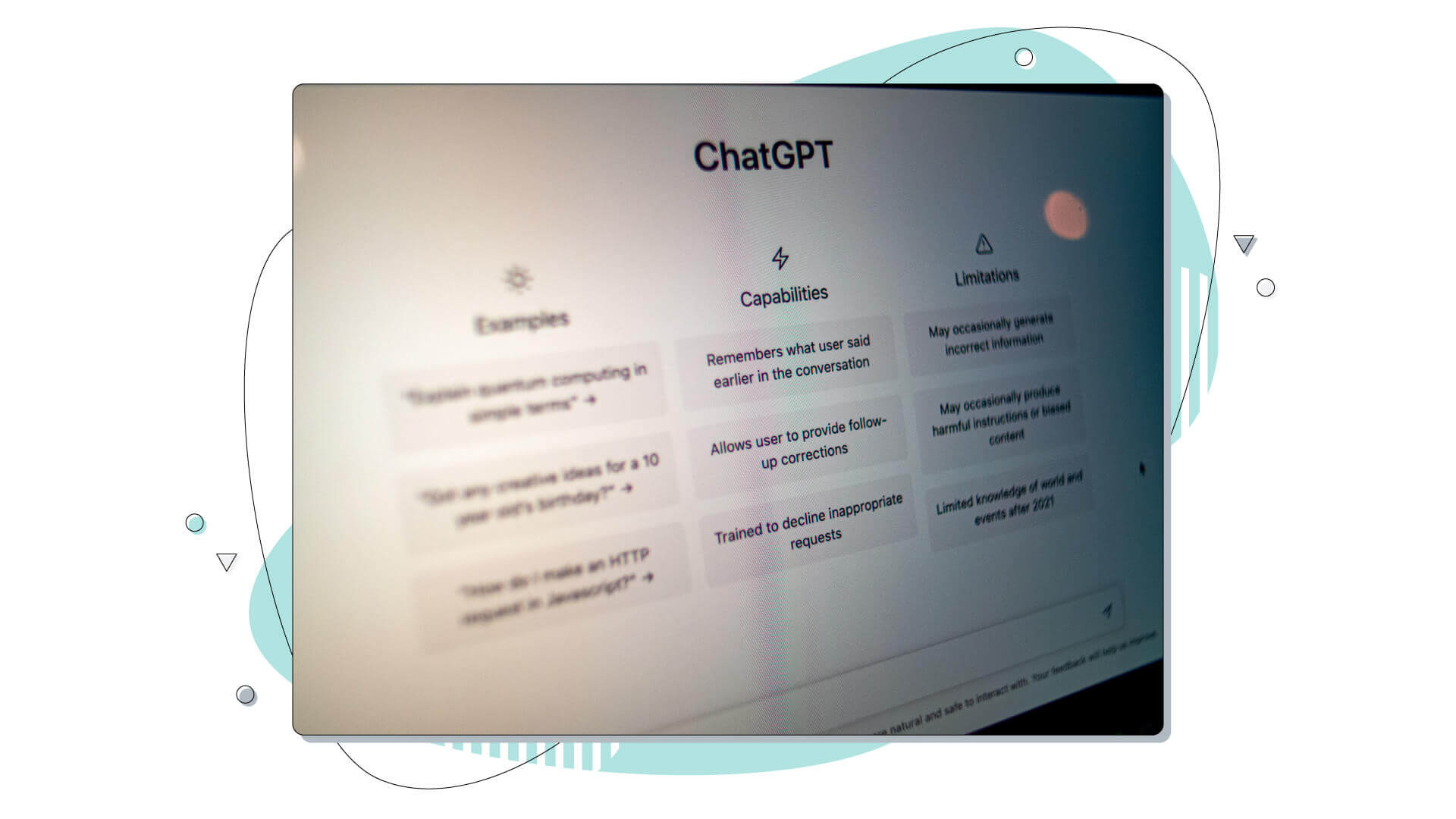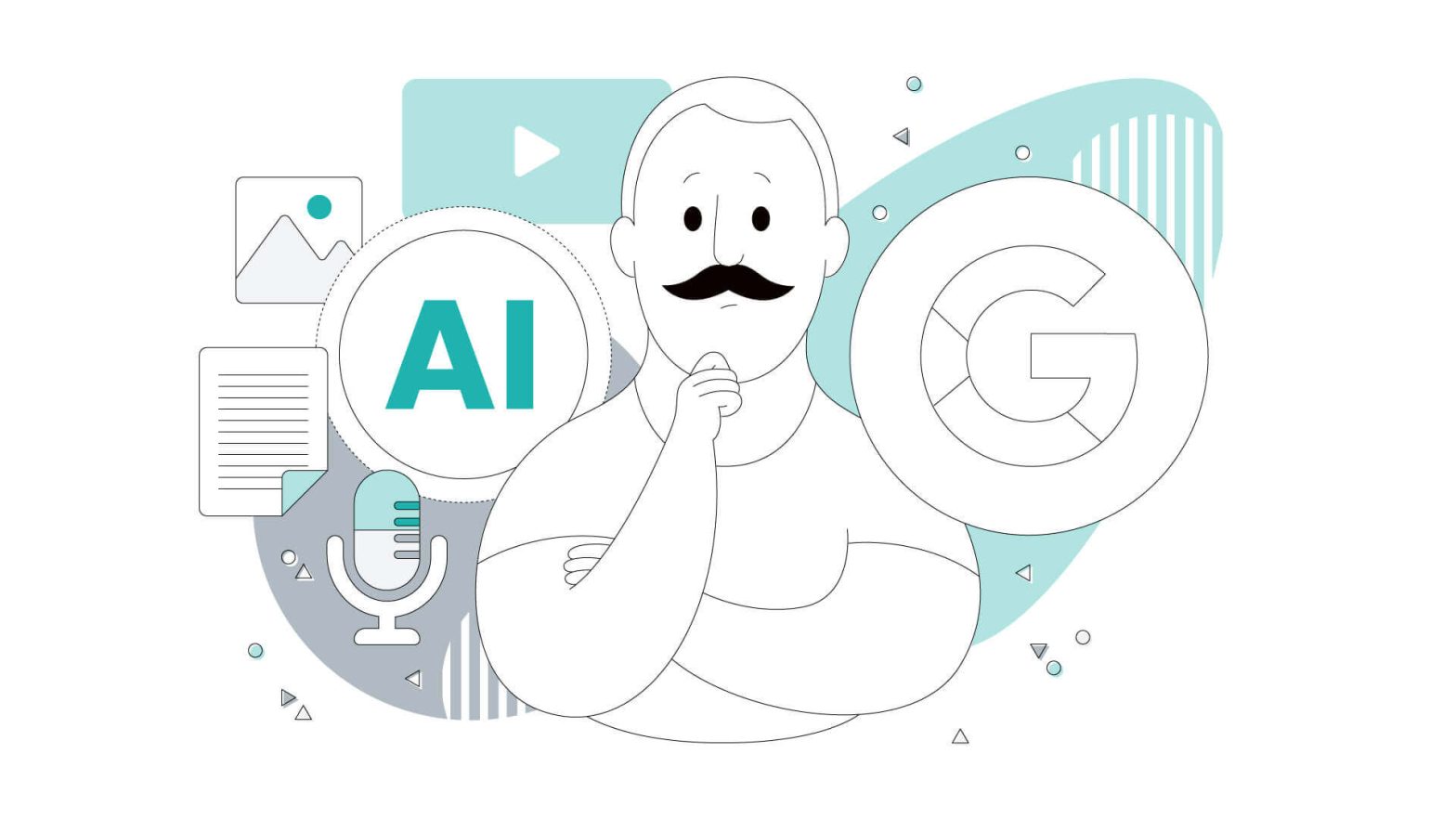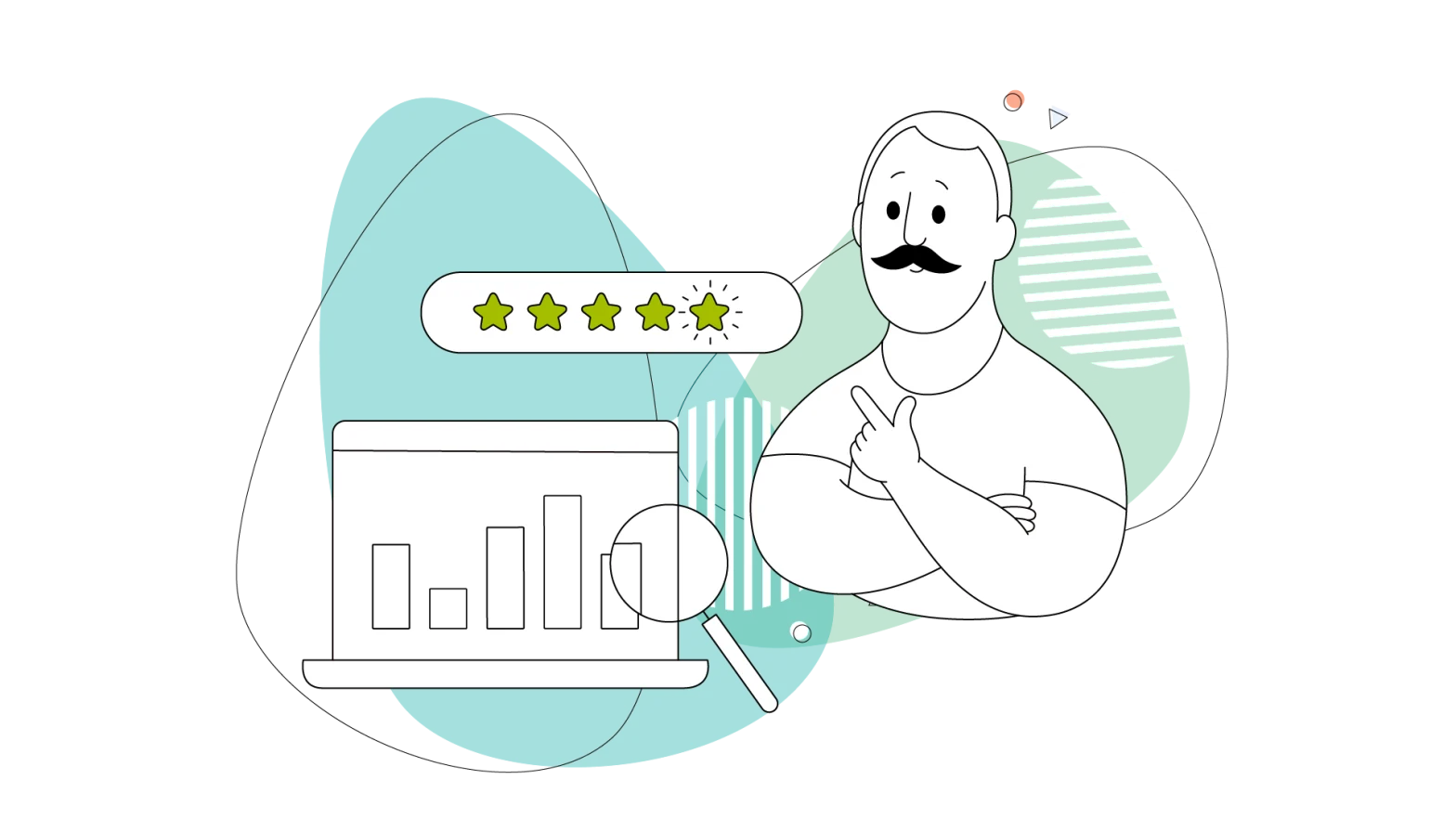AI-generated content and Google’s guidelines have been widely discussed recently, especially after ChatGPT’s explosive growth. Artificial intelligence is becoming increasingly prevalent in search engine optimization (SEO) as businesses use it to streamline content creation (or generation, if you want), personalize content, and improve the user experience.
AI writing tools have raised whether AI-generated content adheres to Google’s guidelines and is a mainstay in today’s SEO landscape.
So, what does Google have to say about this subject? This blog is all about figuring out what Google’s position is on the matter, why Google’s guidelines matter and how to follow them.
- The Rise of AI-Generated Content in SEO
- Google’s Guidelines on AI-Generated Content
- How Will Google Address AI Content?
- Why Should You Follow Google’s Guidelines?

The Rise of AI-Generated Content in SEO
To understand how Google looks at AI-generated content, we must first consider their general recommendations for content quality and creator trustworthiness.
Their Quality Rater Guidelines state, “High-quality, useful, informative and enjoyable content should be produced with audience needs in mind. Content should not be created solely to attract search engines.”
The company also stresses the importance of trustworthiness. To evaluate whether or not a website is trustworthy, Google looks at factors such as author credibility and the website’s transparency. Author credibility is determined by what kind of content is produced, who wrote it, and why they wrote it.
As one of the primary search tools of millions daily, Google Search is now bombarded with AI-generated content from thousands of websites. It needs to be clarified whether AI-generated content is helpful for searchers, even if it contains a lot of information.
The rise of AI-generated content in SEO has made it difficult for Google to determine the source of the content and how trustworthy it is, but it has given an excellent opportunity for many websites to fine-tune their SEO strategy and boost their websites in the SERPs.
With OpenAI’s ChatGPT becoming free sometime in 2022, there’s been an explosive rise in AI-generated content, whether it’s marketing copy, blog posts, social media posts or even images generated by sophisticated machine learning algorithms. All these content creation tools are widely available even today. An AI system like that, though, can provide keyword suggestions and help create a blog post outline in less than a minute – which is scary and impressive at the same time.
Gartner’s predictions read that by 2025, large organizations will create 30% of their outbound marketing messages using AI content generators. Another one from the same source states that by the end of 2030, we’ll have a blockbuster film, with 90% of it generated using AI tools.

Google’s Guidelines on AI-Generated Content
Google is committed to its “people-first” and “high-quality content” philosophy, which prioritizes creating helpful and reliable content that can be easily understood by all.
While keyword research remains a crucial aspect of SEO, Google’s guidelines emphasize that content should be written for human readers first and search engines second. This is especially important in light of the rise of AI content generators, which have changed how people create and produce content.
However, Google has expressed concern over using AI content generators and their potential to manipulate search rankings. While these tools can quickly produce high-quality content perfectly aligned with Google’s guidelines, there are questions about their reliability and whether they play well with Google’s “people-first” philosophy.
In response to these concerns, Google has recently restated and clarified its guidance on AI-generated content with a new blog post. Google’s guidelines emphasize that the focus should be on generating helpful content that prioritizes user experience rather than using AI-generated content to manipulate search rankings.
That said, Google rewards high-quality content no matter how it’s produced. But, writing content with the primary purpose of manipulating search engine rankings violates Google’s policy (it’s considered spam search results), and it should not be a surprise. The blog post continues with Google promoting automation in specific parts of the creation process while following the E-E-A-T concept.

How Will Google Address AI Content?
As AI and machine learning tools become increasingly sophisticated, more businesses use these technologies to generate content for their websites, social media posts, and other digital channels. However, this has raised questions about how Google will address the use of AI-generated content in search results.
Currently, Google’s guidelines for content creation apply equally to AI-generated and manually-created content. This means that AI-generated content must be high-quality, original, and relevant to users, just like any other content.
However, as AI-generated content becomes more prevalent, Google may need to update its guidelines or algorithms to address the use of this content better. For example, Google may need to develop new algorithms to differentiate between high-quality AI-generated and low-quality or spammy content.
In addition, Google may need to consider the impact of AI-generated content on existing content creators and publishers. If AI-generated content becomes the norm, it could have a significant impact on the media and publishing industries, as well as on content creators who rely on traditional methods for creating and distributing content.
Overall, it’s clear that AI-generated content is becoming an increasingly important part of the digital landscape. As this technology continues to evolve, it will be interesting to see how Google and other search engines address the challenges and opportunities presented by AI-generated content.

Why Should You Follow Google’s Guidelines?
Following Google’s guidelines is crucial for website owners, content marketers or creators who want to offer quality content regardless of how it was written. Whether your content is AI-generated or not, adhering to Google’s guidelines helps ensure your content is optimized for search engines and, above all, that it provides value to your audience.
In the case of AI-generated content, it’s essential to remember that Google values high-quality, original content that meets the needs and expectations of users.
Also, Google Search currently can’t detect AI-generated content, which might change soon. While AI tools can be valuable for content creation, ensuring the resulting content is unique, informative, and relevant to your audience is vital.
Now, if you don’t follow Google’s guidelines for content creation, your AI-generated content may be penalized by Google’s algorithm. This can result in your content being demoted in search results or even removed entirely from Google’s index.
Not only can this harm your search engine visibility and traffic, but it can also damage your reputation and credibility with your audience.
To avoid penalties and ensure the success of your AI-generated content, it’s essential to follow Google’s guidelines for content creation. This includes creating unique, informative, engaging content and avoiding spammy or manipulative tactics like keyword stuffing or spinning content.
In the end, to achieve success with AI-generated content, it’s important to ensure that it’s valuable to your audience and meets Google’s quality and relevance standards. By doing so, you can help ensure that your content is well-received by both search engines and your audience and helps you achieve your goals for your website or business.

Conclusion: Is AI Content Against Google Guidelines?
Overall, Google is not against AI content generators, nor will they restrict them down the line, as long as they’re used within reasonable limits. It can, however, identify spam content which may impact websites with poor-quality content.
The most important thing for Google Search results is publishing helpful content, whether a blog post, product descriptions, or marketing materials, with the people-first philosophy so that it generally provides valuable information to everyone, as Search Engine Land notes.
On the other hand, poor-quality content made by AI can be penalized for the same reasons as content created by a human. This is a topic that deserves more attention in the future as we continue to experiment and innovate with AI technology in content creation. We recently mentioned that AI content could play a big part in WordPress websites looking to boost their SEO efforts, among many other areas like security, performance and general optimization – but we believe these areas will be significantly enhanced in the future.
If done right, AI has the potential to be invaluable to both businesses and their customers through automated processes that are accurate, efficient, and cost-effective. In any case, understanding Google’s guidelines remains a top priority for SEO professionals around the globe as it helps both climb the search engine rankings and lead to better content.
With that in mind, it’s fair to say that using AI content to create blog posts won’t hurt your rankings and your website’s authority as long as it adheres to Google’s guidelines. Ultimately, by following Google’s rules and principles of quality content creation, there’s no limit. You can use an AI content generator to benefit your audience and your search engine visibility.
Enjoyed this post? Head to our HostPapa blog to read more exciting topics like this one!




